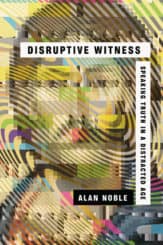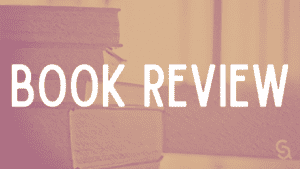
A decade ago, I was pursuing my master’s degree at Baylor University, researching the idea of hospitality as social justice in Latin American short story. The stories I read challenged the filter I had been brought up with as the daughter of a Cuban refugee. It wasn’t comfortable to think about writing a whole chapter on Gabriel García Márquez—a friend of Fidel Castro—in a positive or even neutral way. My identity as a Cuban American was precipitated on staying as far away from Castro and his friendlies as possible.
And yet, I could not get away from the haunting descriptions of García Márquez’s “La siesta del martes,” a short story about a mother coming to visit the grave of her son and the Catholic priest who failed to welcome her as Christ.
When Alan and Brittany Noble moved in to graduate student housing across the parking lot from me, I was ripe for disruption. They were Californians and committed Christians, a combination that I had been trained to view with incredulity. Surely they couldn’t be as conservative as me. Where I’m from, in East Texas, California was known to be a breeding ground for liberals.
I was a little afraid of the unknown. But in my academic research, I was learning the importance of neighbor love and hospitality, so I ventured across the parking lot and let these California transplants into my life. A story helped me move past my fear and engage in genuine relationship.
A story helped me move past my fear and engage in genuine relationship.
The years that followed were filled with good conversations, the birth of babies, health challenges, and academic difficulties. The Nobles taught me much about hospitality and neighborliness. I have to admit, though, that I was puzzled by the way they engaged with what I considered to be secular culture. Star Wars, Groucho Marx, and Cormack McCarthy were frequent topics of conversation, and I was intrigued by their willingness to engage in consumption of cultural artifacts that did not share our Christian worldview.
By the time we finished grad school and relocated to be closer to family, the Nobles had become dear to us and I was thankful that we had the internet to keep us connected. Social media let us share pictures of our growing families and our children’s antics. But when Christ and Pop Culture, the website Alan co-founded, published a positive article about Obamacare and loving one’s neighbor, my conservative Christian feathers got ruffled. I loved my neighbors, but I hated Obamacare—how dare they call my neighbor-loving cred into question?
The way that Alan interacted with me online called me to something outside of myself. Over the internet, he pushed back on my frustrations and asked me to analyze them. He bore witness to the sifting power of social media when the truth was complicated and covered in sand. While a lot of Christian thinkers and teachers were proclaiming the doom of our technology-dependent society, Alan embraced it, and embraced it well.
Alan’s willingness to eschew fear of different ideas and to engage in truth-seeking in this digital age has changed the way I think about media, about God, about myself. His new book, Disruptive Witness: Speaking Truth in a Distracted Age, is rooted in the practices I have seen in him personally—examining our thin and thick beliefs and changing them as necessary, offering a witness of thankfulness to God in our secular society, and shaping our lives around the Gospel rather than our culture.
In Disruptive Witness, Alan lets us in on his journey toward authentic living in this digital, distracted world. He outlines a framework for interpreting ourselves and the world around us, based on the work of Charles Taylor. The concept of the immanent frame was especially helpful to me, and the power of story to open our frames, expanding our ability to understand and engage with the natural and supernatural. We don’t have to be afraid of stories that we feel contradict our Christian sensibilities; we can listen and learn from them, much like I did when my understanding of hospitality was challenged by García Márquez’s “Siesta del martes.”
We don’t have to be afraid of stories that we feel contradict our Christian sensibilities; we can listen and learn from them.
One of the most powerful ideas that Alan puts forth in the book is that of the double movement. To quote from the chapter Disruptive Personal Habits: “Simply put, the double movement is the practice of first acknowledging goodness, beauty, and blessing wherever we encounter them in life, and then turning that goodness outward to glorify God and love our neighbor.”
As a size-dignity activist, I am constantly urging myself and others to practice double movement in the way we think about our bodies. First, I am invited to acknowledge the goodness, beauty and blessing of my own body, created in the image of a loving God. Then (and only then) can I fully turn that goodness outward to loving God and my neighbor as myself.
One of the greatest challenges I face in my activism work is fear: we are a people who live in fear of weakness and vulnerability in our bodies. Our culture demands a continual striving for health and wellness in our physical bodies, one that borders on unhealthy obsession.
“My body tells my story”—this phrase is one of the foundations of the work that I do with size dignity. I have learned that the most powerful way to combat fear connected with our bodies is to reframe our thinking into stories. We must consider that the purpose of a body is something bigger than improved performance and freedom from illness. Especially when it comes to our bodies, we are in need of having our immanent frames opened and expanded. One way to do that is through the practice of double movement. This helps us cut through the distraction of our cultural health obsession and read the stories that our bodies are telling, with all their vulnerability and weakness and joy and pain. When we do this, we don’t have to be afraid. We can lean into the truth that our bodies are made for relationship—not performance.
The most powerful way to combat fear is to reframe our thinking into stories.
In Disruptive Witness, Alan Noble masterfully shows how Christians can participate in our society without losing the reality of the self, bringing the fruit of God’s Spirit to bear on the world around us. Such an approach helps us to engage with the stories of our culture with hospitality and curiosity instead of fear. The value of this cannot be overstated for speaking truth in this distracted age about our relationships with ourselves, our bodies, and our neighbors.
Amanda Martinez Beck is a Catholic size-dignity activist, author, and speaker from East Texas. She cohosts the Fat & Faithful Podcast and her book, Lovely: How I Learned to Embrace the Body God Gave Me, debuts in December.

